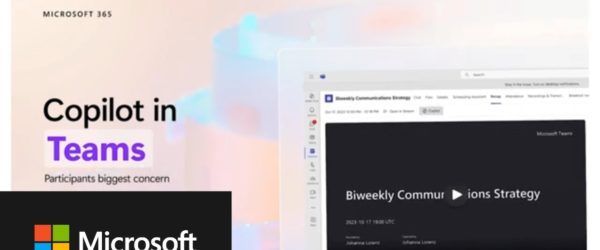
Gartner forecasts that the cloud services industry will grow exponentially through 2022. This certainly is an opportunity for professionals who would like to propel their career in cloud computing. With this exponential growth, organizations need qualified professionals to manage the cloud. The question that arises is, why is there a sudden need for cloud professionals, and what opportunities exist for those who are willing to gain the needed knowledge and credentials. Cloud computing has largely eradicated working with physical servers today. Many organizations have migrated to cloud computing, offering more flexibility for employees to work remotely and providing professionals with cloud computing knowledge and several avenues for career growth.
Cloud computing encompasses a wide area of information technology. The areas covered in cloud computing are:
- Hardware framework
- Software framework
- Data centre facilities
- Virtualization technology
- Software engineering terminologies
What are the prerequisites for learning cloud computing?
Basic IT skills are enough to start out in cloud computing. The requirements for cloud computing are the basic concepts of how the workflows in the above-mentioned areas and how they relate to each other. Additional skills can be learned through hands-on practice in real-time. The best way to learn cloud computing is to start with the basic concepts: knowledge of operating systems, virtualization, and networking. Let’s further explore the role that the operating system, virtualization, and networking play in IT and how to operate at a higher level:
Awareness of Operating Systems & Role of Servers
Knowledge of operating systems like Windows, Linux, Unix, their role, and how they operate and connect to servers to retrieve and store data would be sufficient to start on how to learn cloud computing.
The Basic Concept of Virtualization
The concept of virtualization, the role of the virtual machine, and how to create it would be a strong place to start. To explain this concept in brief, the machine is present virtually – there is no physical identity to the machine. It is an instance created by humans and has its OS, CPU, RAM, and disk space. Many virtual machines can exist on one physical computer.
Knowledge of Networking
Networking is interconnecting computing devices that can exchange data and share resources with each other. These networked devices use a system of rules, called communications protocols, to transmit information over physical or wireless technologies. Networking needs a little more time than what one would have taken to understand OS, servers, and virtual machines.
Awareness of the Types of Cloud Models: Public, Private, and Hybrid Cloud
Cloud computing is available in three types of models: public, private, and hybrid clouds. Public cloud and private cloud are two terminologies commonly used in the market today.
Public Cloud: This is a publicly accessible framework where an organisation can store data or use it as a virtual machine. There is no need to invest time and effort in buying physical. Public clouds are available to use on a pay per approach basis.
Private Cloud: A private cloud is the best option for a cloud exclusively for the organization. Along with the flexibility it provides, the organisation can opt for a data centre on the premises for security and compliance needs. A dedicated professional is required to manage the private cloud framework.
Hybrid Cloud: Hybrid is a combination of public and private clouds. There are businesses with certain needs that can benefit from the combination of using a hybrid cloud.
Different Cloud Server Providers
The best-known cloud server providers today in the market are:
Amazon Web Services: Known for seamless integrations and services available. Microsoft Azure:Ideal for enterprise clients that are familiar with Microsoft products. Google Cloud Platform:Suits developers needing streamlined cloud services for development and deployment.
Career opportunities:
The cloud offers a wide range of excellent career opportunities. These include cloud software engineer, cloud software application engineer, cloud architect, cloud consultant, and cloud security expert.
Cloud vendors and other organisations offer various certifications, such as:
- Amazon Web Services (AWS) solution architect – associate: This certification shows your proficiency in the basic technical concepts of AWS cloud engineering that can position you to qualify for related jobs.
- Microsoft Certified: Azure Fundamentals: This foundational certification validates your basic knowledge of cloud services and how those services are provided with Azure and is designed for those with both technical and non-technical backgrounds.
- Google Associate Cloud Engineer: Getting certified as a Google Associate Cloud Engineer will mean showing competency in basic aspects of working with Google Cloud.
- IBM Certified Technical Advocate – Cloud v3: This is the foundational certification for IBM cloud.
- Cloud Security Alliance: Certificate of Cloud Security Knowledge (CCSK): A vendor-neutral certification based on fundamentals of cloud security.
- Certified in Emerging Technology (CET): This certification from ISACA provides emerging tech expertise to provide a boost in current or future roles in IT audit, risk, security, cybersecurity, governance, privacy, or business growth.
- Certificate in Cloud Auditing Knowledge (CCAK): This certificate, a joint credential from ISACA and the Cloud Security Alliance, fills a gap in the market for vendor-neutral, technical education for IT audit, security, and risk professionals to understand unique cloud terminology, challenges, and solutions
BRAMS Partnership with the leader
With its expertise, BRAMS offers you market-leading cloud solutions billed per use. With BRAMS, now you can unleash your full potential and focus on what matters most: Your activities with maximum security for your system. Thanks to its partnerships and collaboration with the biggest global cloud pioneers: Microsoft, Amazon Web Services, IBM Cloud and Google Cloud, Brams has become a multi-industry focus, to support companies of different sectors and sizes to move to the Cloud for more than two decades of expertise.
Get in touch with an Expert ..
Source: https://www.cxotoday.com/cxo-bytes/ways-to-master-cloud-computing/


